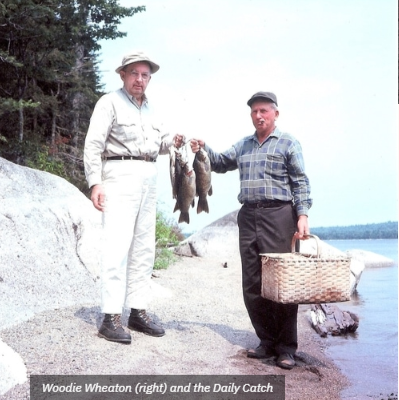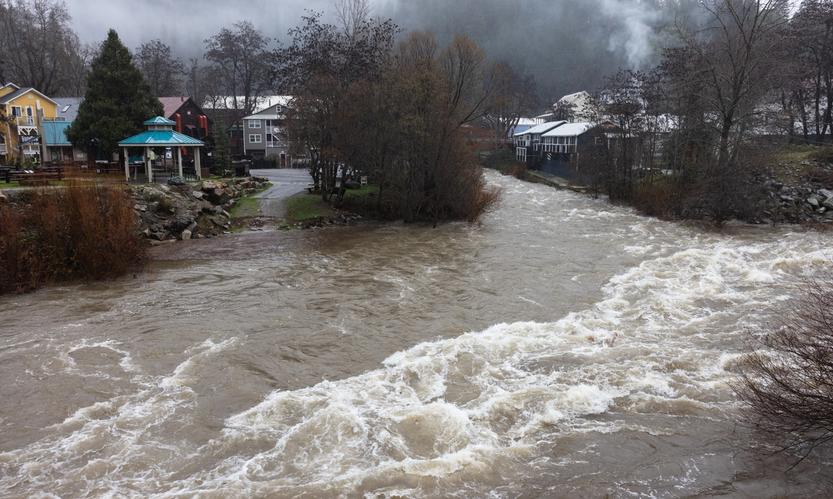Maintaining the Maine Wilderness
July 5, 2024

Woodie Wheaton (right) and the Daily Catch
I had been planning a visit to the Woodie Wheaton Land Trust’s newest acquisition — a privately-owned family compound on Spednic Lake — and finally had the chance during my last trip up to camp. April Fowler, the Director of the Trust, met me briefly at her office, then together we meandered through the forest trails in my old Land Rover truck. We are both deeply attached to the area, I through my camp at East Grand Lake — my “home waters” — and she through the vast land preserves owned and maintained by the Trust, which was created in the mid-1990s and named after her grandfather, the famed 1950s Maine guide and lodge owner Woodie Wheaton. We discussed the options for the land being considered by a specially appointed Trust committee, such as creating a visitors’ center, building housing for the employees of the Trust, or removing all the existing, currently uninhabitable structures and letting the area rewild. Over the years the Trust has hired student interns who work during their summer breaks maintaining the trails; they will likely also have a role in restoring the area. Importantly, there is now public access to the lake, which was once hampered by legal issues. Originally, the camp was a landing place for the Forrest City tannery workers, who crossed over daily from the Canadian side of Spednic Lake. In later years, the camp was purchased by a family from Connecticut, which then sold it to the Trust. On site there is a cooking building with dining, and a dormitory-style “sleep cabin.” Despite the buildings’ age and neglect, there are still remnants of the past, including lovely hand-painted art, mostly watercolors, in the various rooms. My own camp pales in comparison to the authenticity of these buildings, which were “kit cabins” created by a company out of Houlton, Maine, which is still in business. The boathouse reminded me of my own camp, cluttered with old fishing equipment accumulated from decades of fishing trips.
The work of the Land Trust is seldom appreciated by those who are not residents or vacationers, yet on a grander scale, the relationship of humans to our environment is of a greater concern today than in the past. With the foresight and planning of early environmentalists like John Muir, who was instrumental in the creation of the national park system, to our present-day smaller community organizations such as the Woodie Wheaton Land Trust, the words of Henry David Thoreau resonate through the ages: “In Wildness is the preservation of the World.”
Featured Articles

Storms Bring Heavy Rainfall and Local Disruptions →
December 22, 2025
Sierra County faces power outages and water issues amid heavy rainfall and storm warnings.
215 Animals Seized for Cruelty from Grass Valley Property →
December 22, 2025
Human Remains Found Near South Yuba Bridge in March Identified →
December 17, 2025
Transfer Station Burn Suspended After Community Concerns →
December 16, 2025
Sierra Hardware Plans Extensive Repairs After Flood Damage →
December 8, 2025